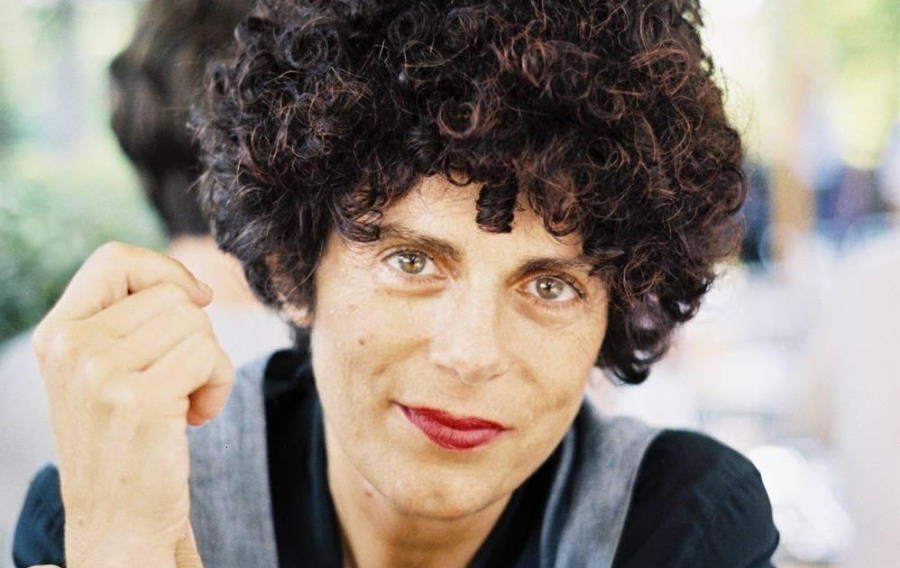Like Dolly Wilde (and her uncle Oscar), playwright/biographer Joan Schenkar was her own best creation. Like Oscar (but not like Dolly), Joan left this world several plays and books that will continue to merit attention. She died in Paris early this May; she was 78, though she’d neatly excised a decade from most of the record books.
“Never tell the Times your age,” she once advised me. “I never do.”
“What do you do then?”
“I ask the writer in question to include his—or her—age in the article as well.” She gave me that lazy, wicked smile of hers. “Works every time.”
I met Joan in 2002, not long after I became a member of New Dramatists, an organization of which she was an alumna. For the next 11 years we’d see each other whenever I’d visit New York City, and later more frequently when I took up residence there.
Those who cared for her cared deeply. Fiercely intelligent, strikingly well-read, no respecter of sacred cows or éminences grises, she could destroy a person, a place, or a thing in a phrase. (“Fit for Kindle,” she said of one author’s work, “fit for kindling.”) As long as you weren’t the object of her disdain—and few managed disdain as well as Joan—she was great fun.
It wasn’t just malicious fun. Her enthusiasms were contagious; to Joan I owe my knowledge of Theodora Keogh’s work, Elizabeth Taylor’s, and, most strikingly, Sybille Bedford’s. When Bedford called to praise something she had written, Joan was genuinely awestruck. Her admiration for what she deemed talent was passionate, articulate, and whole-hearted.
During the years I knew her she’d given up writing for the theatre. I don’t think she missed it, either. In her opinion most theatre was pretty bad. When she found something to champion—the “dark cabaret” of the Tiger Lillies, say, or the National Theatre’s epic adaptation of Philip Pullman’s His Dark Materials—her praise was unabashed.
Her plays have their savage, witty moments; they wouldn’t be Joan’s if they didn’t. The theatrical imagination that animates them is often impressive, and they bear reinvestigation. But it’s her work as a biographer that will last. Truly Wilde is a fascinating study of Dorothy Wilde, known as Dolly, whose short and spectacular life in London and Paris eerily echoed that of her more famous uncle’s.
Joan’s book on Patricia Highsmith is even better, offering a look at the disturbing (and disturbed) novelist’s life and work through a series of thematic lenses. No conventional birth-to-death biography, The Talented Miss Highsmith took a huge toll on Joan’s mental, physical, and emotional health over the years it took her to write it, but the vast and almost universal acclaim the book received made up for the hell Highsmith had put her through.
Both books capture voices and experiences that had been ignored and, without Joan’s diligent research, would have been lost. Both are valuable contributions to the history of queer life and literature in the twentieth century.
A long-time dweller in Gotham, Joan lived through a number of eras in New York City’s cultural life. She was proud of this, proud of having lived in the Chelsea Hotel (where, you will please note, she had a room with a fireplace), of having witnessed any number of scenes and scene-makers, of whom she had very definite opinions. She loved Joe Chaikin, for instance, but never liked Dylan (“I preferred,” she said, ever the contrarian, “Dave Von Ronk”). Her knowledge of the city was deep and offbeat. Looking for the best place to play ping-pong? Joan had the answer. Never been to Marie’s Crisis, a piano bar hangout of Highsmith’s? No time like the present.
She maintained apartments in Greenwich Village and Paris. The place on Cornelia Street wasn’t much bigger than a walk-in closet, and she used her stove there as a bookshelf. Her flat in the 6th arrondissement was larger, but she suffered from a noisy downstairs neighbor, Umberto Eco. She divided her time between the two as work and life demanded.
One somehow expected that a withering look and a cutting remark would drive death from either of her doorsteps. Such was not the case. She died in Paris and is buried in the Cimetière du Père-Lachaise with so many of her literary and theatrical heroines—a fact which, if she’s somehow aware of it, must be a source of infinite gratification.
She and I had fallen out of contact in the years preceding her death. Several months ago I’d seriously contemplated writing to her and reviving our friendship, such was the intelligence, charm, and pleasure she so easily provided. After much thought, I let the idea drop—such was the cruelty and hauteur she could wield with such ease and effect. Unsure of which Joan would answer, I chose silence.
I’m still not sure I made the right choice.
“Well, it’s too late now, isn’t?” I can hear say. “We’ve all been foolish. Have another Campari and orange juice, and I’ll tell you how I once passed up the chance to meet Samuel Beckett…”
An Edgar Award-winning playwright, an alumnus of New Dramatists, and a former Calderwood Fellow at MacDowell, Joseph Goodrich (he/him) lives in New York City.


